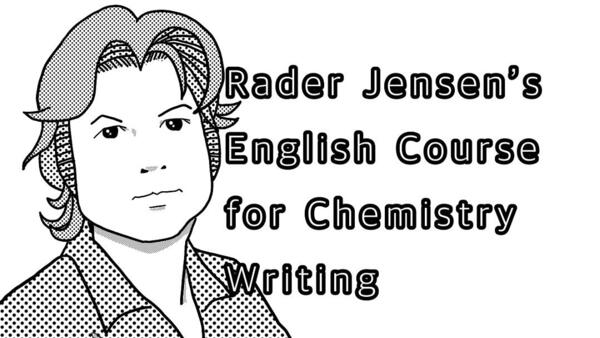CSJ Journals
[化学論文のための英語講座] 第40回:動名詞と不定詞 Part5
(English version is here.)
今回は助動詞will/would と動名詞・to不定詞の組み合わせの例を見てみましょう。
1. Accomplishing this task will be a major accomplishment.
訳文:この課題を達成すると、大きな成果になります。
解説:動名詞「Accomplishing」と助動詞「will」はどちらもリアルな感覚を与えるので、この文は確実にできそうなことを述べます。課題はまだ達成していません。
動名詞の代わりにto不定詞を用いると以下のようになります。
2. To accomplish this task would be a major accomplishment.
訳文:この課題を達成できるために、大きな成果になるかもしれません。
解説:to不定詞は名詞の性質を持ちますが、目的の意味を含むのでこの例文は不自然で違和感を与えます。
3. Accomplishing this task would be a major accomplishment.
訳文:この課題を達成すると、大きな成果になるかもしれません。
解説:「Accomplishing」はリアルな感覚ですが「would」は仮定な感覚です。課題は達成するつもりですが、成功できるかはまだ確実ではありません。
同様に、動名詞の代わりにto不定詞を用いると、以下のようになります。
4. To accomplish this task will be a major accomplishment.
訳文:この課題を達成できるために、大きな成果になります。
解説:この文は例文2と同じくちょっと不自然です。to不定詞は目的の意味を含むので、この例文は不自然で違和感を与えます。
1~4の対比として助動詞を使わない場合も見てみましょう。
5. Accomplishing this task is a major accomplishment.
訳文:この課題を達成することは大きな成果です。
解説:課題を現在達成したばかりか、実施中である感覚を与えます。
過去を述べる例文を見てみましょう。
6. Accomplishing this task was a major accomplishment.
訳文:この課題を達成したことは大きな成果でした。
解説:過去に達成したことを表します。
7. Accomplishing this task would have been a major accomplishment.
訳文:課題を達成できていたら、大きな成果になったでしょう。
解説:現実には達成できなかったことを示します。
今までの例文ではto不定詞は不適切ですが、助動詞と使える場合を考えてみましょう。To不定詞を助動詞と使う場合は、独立節が必要です。to不定詞の後は完全文が現れます。以下の例文を見てみましょう。
8. To accomplish this task, great effort will be necessary.
訳文:課題を達成するために、多大な努力が必要になります。
解説:「will」は事実であるので、課題を実際に果たすのを示します。
9. To accomplish this task, great effort would be necessary.
訳文:課題を達成するために、多大な努力が必要になるでしょう。
解説:「would」は仮定であるので課題を果たすつもりがあるかどうかは明確ではありません。
[まとめ] 一般には動名詞は従属節、to不定詞は独立節と一緒に使います。動名詞は動作、to不定詞は目的の意味を含みます。
次回は動名詞についてのミニクイズです。
Gerunds and Infinitives Part 5 Examples Combining with Auxiliary Verbs
This time, let us look at examples combining the auxiliary verb will/would and gerunds/to infinitives.
1. Accomplishing this task will be a major accomplishment.
Explanation: Both the gerund accomplishing and the auxiliary verb will give a real feeling and thus, this sentence expresses a certain possibility. The task has not yet been accomplished.
Replacing the gerund with a to infinitive gives the sentence below.
2. To accomplish this task would be a major accomplishment.
Explanation: Although to infinitives have noun characteristics, they include a meaning of purpose and hence, this example is unnatural and gives an awkward feeling.
3. Accomplishing this task would be a major accomplishment.
Explanation: Accomplishing imparts a feeling of reality, however, would is hypothetical. Accomplishing the task is intended, but whether it will be successful is uncertain.
Again, replacing the gerund with a to infinitive gives the sentence below.
4. To accomplish this task will be a major accomplishment.
Explanation: Like example 2 this sentence is somewhat unnatural. Because to infinitives include a sense of purpose, this sentence is unnatural and gives an awkward feeling.
5. Accomplishing this task is a major accomplishment.
Explanation: This gives a feeling of the task being just completed or being in the process of completion.
Let us look at an example in the past.
6. Accomplishing this task was a major accomplishment.
Explanation: This shows a task accomplished in the past.
7. Accomplishing this task would have been a major accomplishment.
Explanation: This expresses something that was not actually accomplished.
In the examples shown so far to infinitives have been inappropriate, so let us think of a case in which they can be used with an auxiliary verb. When using a to infinitive with an auxiliary verb, an independent clause is necessary. A complete sentence appears after the to infinitive. Let us look at the examples below.
8. To accomplish this task, great effort will be necessary.
Explanation: Will is real and thus this demonstrates the task will be fulfilled.
9. To accomplish this task, great effort would be necessary.
Explanation: Would is hypothetical and thus whether accomplishing this task is intended or not is uncertain.
Summary: Generally, gerunds are used with dependent clauses while to infinitives are used with independent clauses. Gerunds imply action while infinites imply intent.
At next time, we will submit Pop Quiz about Gerund.
